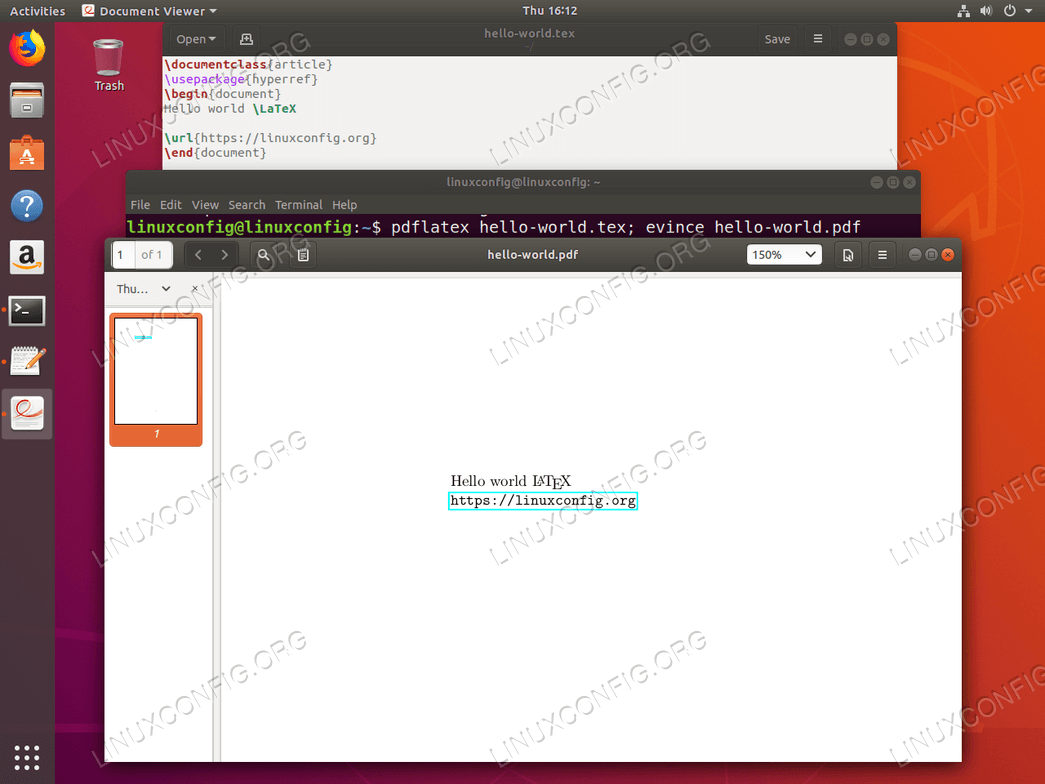

( gksudo is used in this example since the file is a system file owned by root): gksudo gedit +21 /etc/apt/sources.list To open at a specific line number, useful when an error message includes the line number, include "+". It is NOT recommended to manually run graphical applications with administrative privileges, but in case you insist to do it, be sure to use gksudo rather than sudo. To edit system files such as sources.list and fstab, open it with administrative privileges. To open multiple files: gedit file1 file2 If the file is not found, gedit will open a blank file with the file name entered on the command line: If a path is not included in the startup command, gedit will look for the file in the current directory. Opening gedit via the command line allows the user to take advantage of several options unavailable from the GUI menu. Gedit incorporates a graphical user interface (GUI) and is opened by going to Applications → Accessories → Text Editor or by pressing Alt+F2 and typing gedit
#INSTALL GEDIT LINUX INSTALL#

gedit can be installed in Kubuntu, Xubuntu and other distributions although additional libraries are necessary and will be installed on non-GNOME systems. Gedit is located in Ubuntu's Main repository and is installed by default. Gedit is suited for both basic and more advanced text editing and is released under the GNU General Public License. These include multilanguage spell checking, extensive support of syntax highlighting, and a large number of official and third party plugins. It is UTF-8 compatible and supports most standard text editor features as well as many advanced features.
#INSTALL GEDIT LINUX HOW TO#
In conclusion, we have discussed how to install gedit in Ubuntu 20.04 LTS release.Text Editor (gedit) is the default GUI text editor in the Ubuntu operating system. Lastly, the package can be accessed from our Systems’ main Menu or terminal (issue gedit in terminal to run the application). This will also install necessary dependencies (if any). sudo apt updateĪnd, to install gedit – issue the following in terminal, sudo apt install gedit
#INSTALL GEDIT LINUX UPDATE#
Therefore, we need to first update Ubuntu repository to make the latest version of package available. Since the package is already available in standard Ubuntu repository. In case you don’t have one, then contact your System Administrator for assistance. Note: Following operations would require you to have superuser privileges.

We can install gedit through apt ( Advanced Packaging Tool). It supports syntax of numerous languages like Java, HTML, Python, C, C++ etc. And, at the time of writing the article, latest stable release is 3.36.1. The package was first released on February 12, 1999. In this article, we would discuss how to install gedit in Ubuntu 20.04 LTS release. Then, you will have to install gedit separately. But, if you prefer to work with gedit and have some other Desktop Environment installed. If you have installed GNOME Desktop Environment then, gedit comes installed as default.


 0 kommentar(er)
0 kommentar(er)
